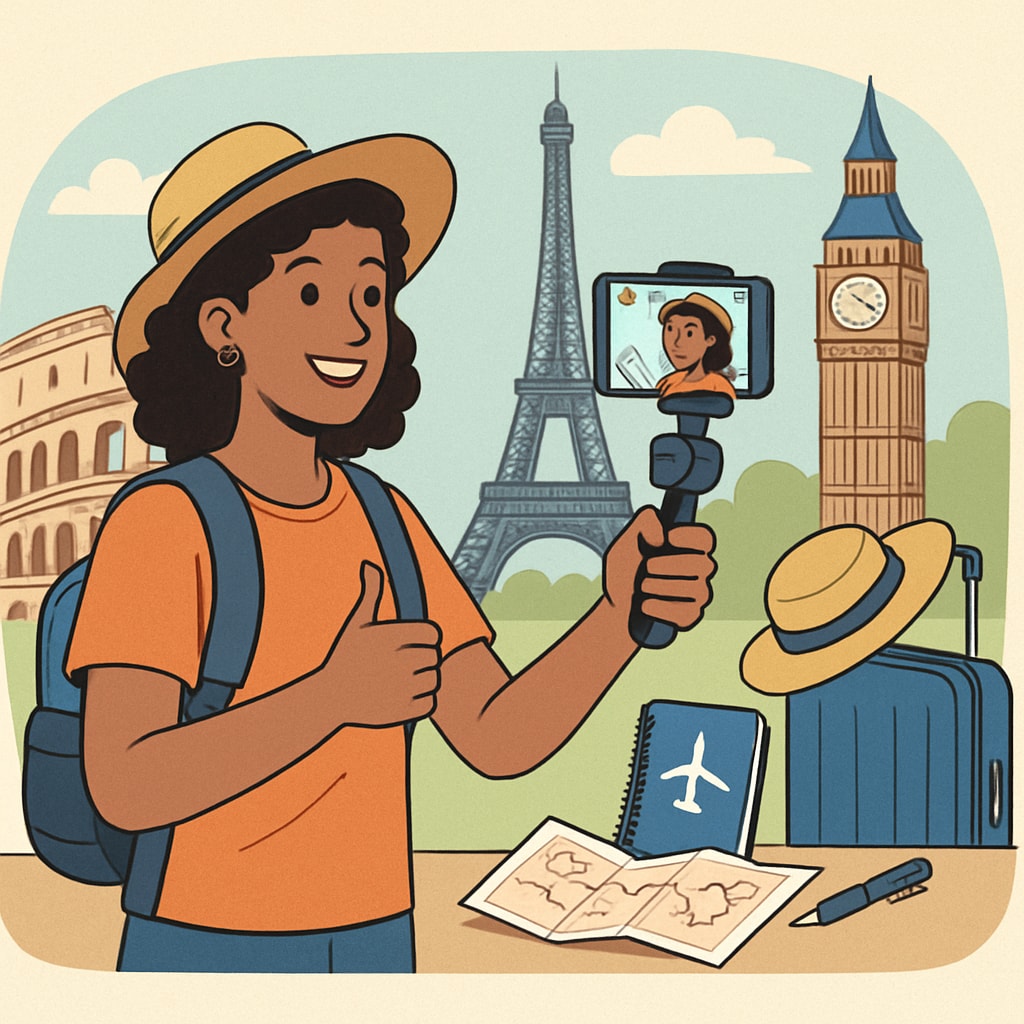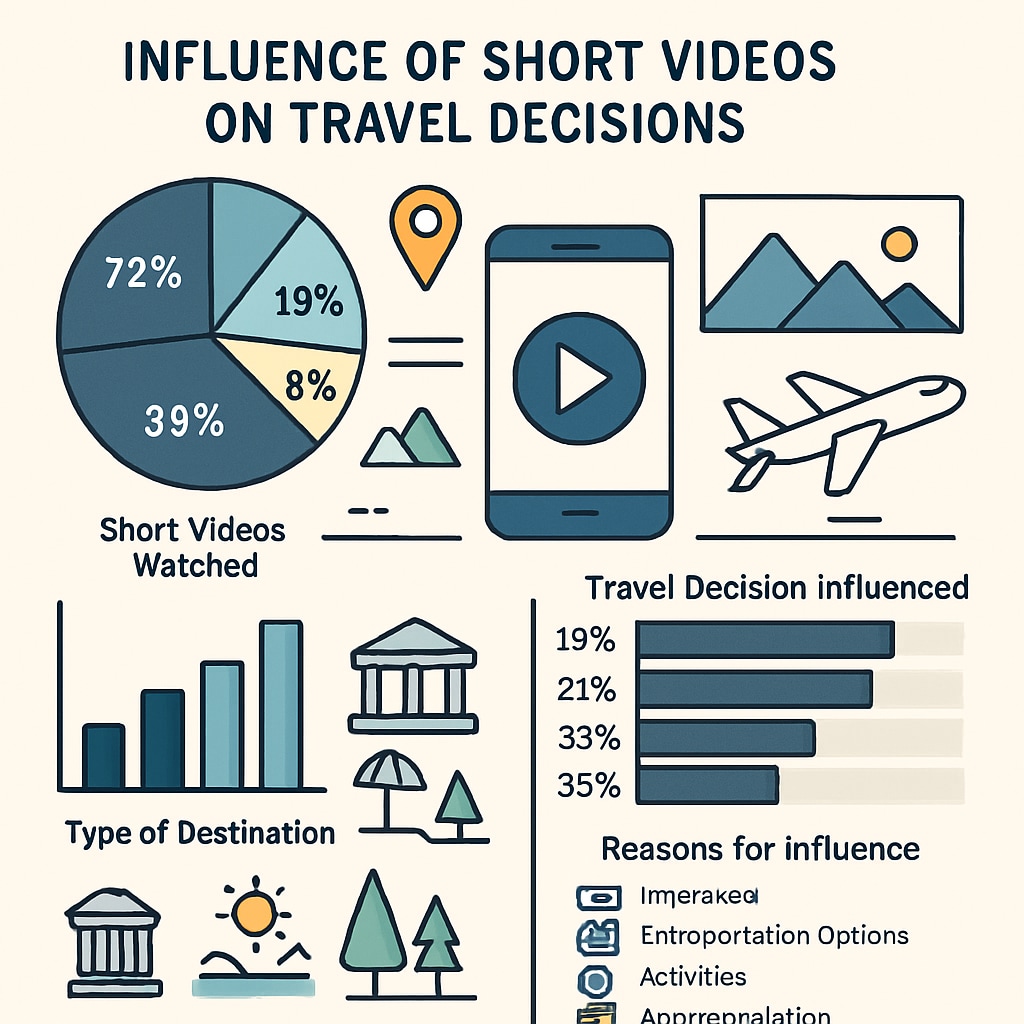Short videos have become a powerful tool in influencing various aspects of our lives, including how we make travel decisions. As part of a master’s thesis study, this article delves into the role of short videos in tourism, exploring their impact on travelers’ decision-making processes and preferences. The research employs a questionnaire-based approach to gather insights from individuals and analyze how digital content reshapes the way people plan their trips. By understanding these dynamics, we can better appreciate the transformative power of short-form videos in the travel industry.

The Rise of Short Videos in Tourism
Over the last decade, short videos have emerged as a dominant form of content on platforms like TikTok, Instagram Reels, and YouTube Shorts. These brief, engaging clips are designed to capture attention quickly, making them an ideal medium for promoting travel destinations. Travelers are increasingly turning to these platforms for inspiration, relying on user-generated content to discover hidden gems, plan itineraries, and explore cultural highlights. A key question explored in the master’s thesis is: how much do these videos influence actual travel decisions?
The study’s questionnaire revealed that many travelers trust short videos more than traditional advertisements because they often feature authentic experiences. Additionally, the algorithm-driven personalization of content ensures that viewers are exposed to destinations that align with their preferences, further solidifying the role of short videos as decision-making tools.
How Questionnaires Helped Uncover Traveler Preferences
To understand the extent of short video influence, the master’s thesis employed a detailed questionnaire aimed at frequent travelers. Questions focused on their content consumption habits, the factors that drive their travel decisions, and the role of short videos in shaping their perceptions. Key findings include:
- Over 70% of respondents reported that they had chosen a travel destination after watching a short video about it.
- Respondents valued videos that showcased real experiences, practical tips, and visually appealing content.
- Short videos were particularly influential among younger generations, who are more likely to use social media for trip planning.

Implications for Tourism and Content Creators
The findings of the master’s thesis have significant implications for both tourism professionals and content creators. For travel agencies, integrating short videos into their marketing strategies can enhance engagement and drive bookings. For example, creating destination-focused reels or collaborating with influencers can generate interest and trust among potential travelers.
Content creators, on the other hand, can leverage these insights to produce more targeted videos. By focusing on authenticity, storytelling, and practical advice, they can create content that resonates with viewers and inspires action. As a result, the symbiotic relationship between creators and the tourism industry continues to grow, driven by the mutual benefits of short-form video content.
Future Directions for Research
While this study highlights the impact of short videos on tourism, it also opens the door for further research. Future studies could examine the long-term effects of short-form content on travel habits, explore demographic differences in content consumption, or evaluate the effectiveness of different video styles. Additionally, incorporating data from global audiences could provide a more comprehensive view of how cultural contexts influence the perception of short videos in tourism.
In conclusion, the master’s thesis underscores the transformative potential of short videos in the travel industry. By combining engaging visuals with authentic storytelling, these clips have become a cornerstone of modern tourism marketing. As the digital landscape continues to evolve, short videos will undoubtedly play an even more significant role in shaping how we explore the world.


